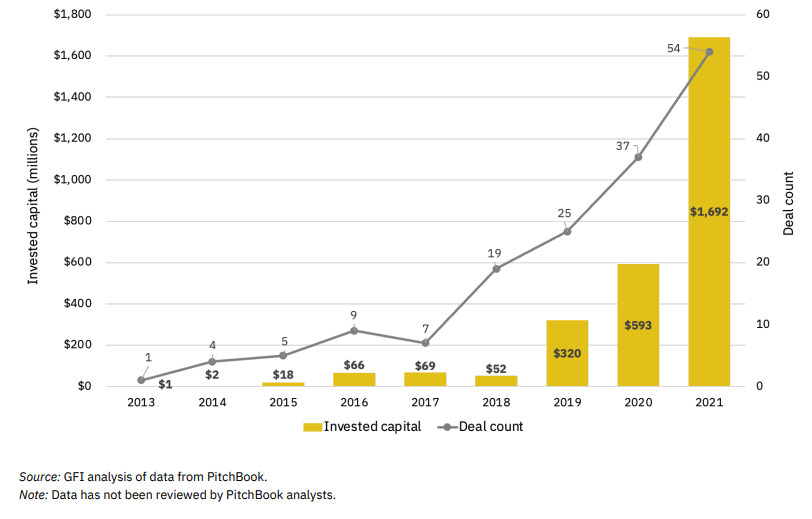After spending half a decade (and $150 million in funding) developing recombinant proteins made via precision fermentation, Remilk announced last week the launch of what it’s calling New Milk in partnership with Gad Dairies, one of Israel’s largest dairy distributors. Remilk announced that under the new partnership, they and Gad will begin a nationwide rollout of their new product in their home country of Israel.
Real Milk, which will contain 75% less sugar than regular milk, will be manufactured in Spain via a contract manufacturer. The company indicated it will also distribute its milk to cafes and coffee shops and will follow with retailers later this year. The company is eyeing a US market launch in 2026.
To learn more about ReMiIk’s new product and its US market plans, I decided to catch up with the company’s CEO, Avi Wolff. Our conversation ranged from the technical challenges of rebuilding milk from a single protein to what he learned while working with big CPGs and how the company approaches scaling without building its own mega-plants. The answers have been lightly edited for clarity.
Let’s start with the basics. What is The New Milk, and how are you making it?
“We’re using yeast and precision fermentation to produce beta-lactoglobulin, the primary whey protein in milk. And we’re also responsible for the formulation and the manufacturing of the finished product, while Gad will be handling distribution.
“So we are producing milk in bottles at a commercial scale, and this is the product that we’re launching. We’ve already distributed thousands of gallons of milk to consumers, to cafés and restaurants.”
Remilk started as a B2B ingredients company. Why step into finished products and a consumer-facing brand?
“We started as a B2B company selling the ingredients to CPGs. We piloted some products with General Mills three years ago, and what we realized is that a whole lot of innovation and skill sets are required to turn this subset of protein into a delicious dairy product. So we’ve stepped in and we’ve decided to take ownership of the entire value chain from the production of the protein to the production of the finished product. We’ve spent almost six years after raising $150 million in developing the formulation, and this is why we are now ready to launch.”
Can you tell us more about your joint venture with Gad Dairies?. How does that partnership actually work?
“We knew establishing a pure B2C business model is complex and would take a lot of time. We also recognize that this is not within our area of expertise. In simple terms, we believe that distribution and sales are more of a commodity, allowing us to utilize other partners.
“So we decided to partner and establish a new company. We’ve built a new venture with one of the largest dairy companies in Israel. This new company is co-owned by Remilk and Gad and each party is responsible for different parts of the value chain. Distribution, sales and all the logistics around it is taken care of by Gad and everything else is managed by us.”
“We manufacture the finished product, they take it, they store it, they load it on the trucks, and they’re responsible for selling it and driving it to the point of sales, whether it’s retail or foodservice. And obviously, each party has their own KPIs and objectives.”
Is the reason you are looking at North America next because of Europe’s anti-GMO stance?
“Yes, that’s the primary reason.”
How is your product different than Perfect Day’s or other precision fermentation-derived dairy?
“I think it’s in the small breakthroughs and how you take this protein and make it more functional, and how you create a specific flavor profile. If you mix protein with water and fats, it doesn’t taste like milk, and it will not work in coffee like milk. So you need to enhance functionality, and you need to enhance flavoring and aroma and everything. And this is something that we’ve been doing, I would say, perfectly.”
You mentioned you had worked with big CPGs such as General Mills and you needed to take more control over the process. What did you mean by that?
“We worked with them, helping and supporting them in their development process. But the development process, despite the fact that it was sometimes even two years with ongoing developments, we felt that the product was not good enough.”
“And I think that there are many explanations to this, but I think the primary one is the fact that the skill sets that these CPGs have in their existing R&D centers are just completely different from the ones you need different skill sets than what you need to develop dairy products from a single subset of protein.”
“We have 100 employees in Remilk, 70% of them are scientists, PhDs in biology, chemistry, and they’re developing the products. We’re not just traditional food scientists who used to work at the large dairy companies, because we’re conducting deep research on the protein, on the flavoring, on the milk itself. We analyze the milk in order to understand how to mimic the specific smell and taste.”
What is your timeline for a US launch?
“Definitely for the next six to nine months, our focus is going to be succeeding in Israel. Again, we believe that given the nature of this market, we can reach strong momentum relatively quickly.
“While most of the company’s operations will remain in Israel and focus on the Israeli launch, a few key employees and I will begin negotiating a similar deal with a U.S. partnership. A US partnership is definitely something we’re aiming for in 2026.”















